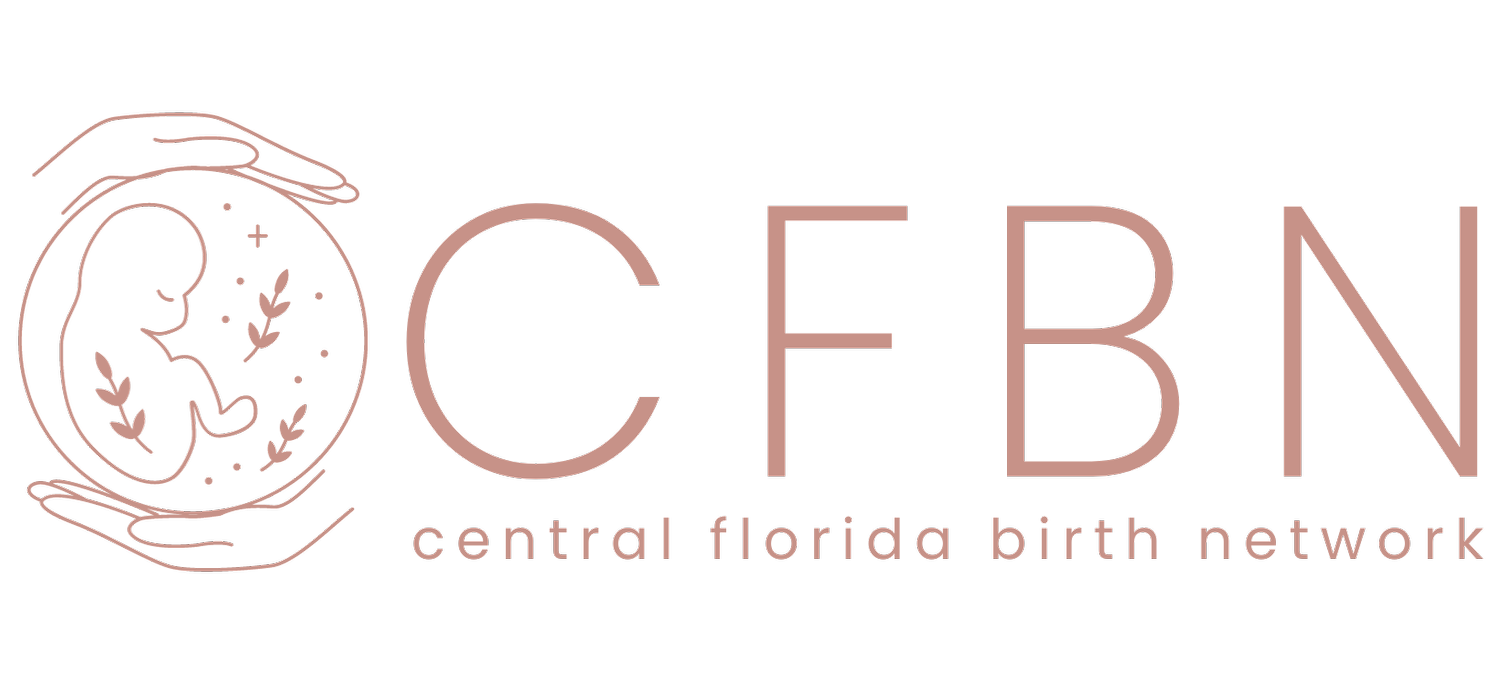Unveiling the Myths: Debunking Common Misconceptions About Pelvic Floor Physical/Occupational Therapy
Contributing Writer(s) for CFBN: Dr. Allie and Dr. Nahir of Anchor Pelvic Physical Therapy. This content may contain opinions that may or may not be shared by all CFBN Members. This content should not be considered a substitute for medical diagnosis or treatment. If you’re looking for a pelvic floor physical therapist, please consider using the Central Florida Birth Network’s Provider Directory.
The awareness around the need for pelvic floor physical and occupational therapy has drastically improved over the last several years but despite therapy being talked about more than ever, there are still numerous misconceptions surrounding pelvic floor therapy. In this blog post, we aim to debunk some of the most common myths that we hear in our office and on our socials.
Myth 1: Pelvic Floor Therapy is Only for Women:
One prevalent misconception is that pelvic floor therapy is exclusively for women. In reality, both men and women can benefit from pelvic floor therapy. Men may experience pelvic floor dysfunction due to issues such as chronic prostatitis, pelvic pain, or post-surgery complications. It is crucial to recognize that pelvic health is a concern for individuals of all genders. About 30% of the clients in our clinic are men and our therapists are highly skilled in treating the male population. ( To learn more, see our previous blog "Do Men Have a Pelvic Floor?" )
Myth 2: Pelvic Floor Therapy is Only for Pregnant or Postpartum Women:
Pelvic floor therapy is massively beneficial for pregnant and postpartum women, but they are far from the only population that will benefit. Pelvic floor dysfunction can affect individuals at any stage of life, regardless of pregnancy or childbirth. We treat pelvic pain everyday in this office and a large number of our patients have never had children. We feel passionate about bringing awareness to the fact that pelvic floor dysfunction does not discriminate and anyone can develop issues in this area.
Myth 3: Incontinence is not a normal part of aging:
Just because your grandma peed when she laughed too hard doesn't mean you should too. We treat urinary leaking and other dysfunction on a regular basis. We pride ourselves on getting you back to whatever activities you want to do without peeing your pants. Whether it's lifting your child or double-unders at your Crossfit gym. We're here and prepared to help with all of it!
Myth 4: Pelvic Floor Therapy is Only About Kegel Exercises:
While Kegel exercises are often a component of pelvic floor therapy, the reality is kegels are never one size fits all and they should never be the sole focus of any pelvic floor rehab program. The muscles need to be fully assessed for tightness, weakness and function and kegels can often be more damaging than helpful. Therapy involves a comprehensive assessment and treatment plan tailored to you and your goals.
Myth 5: You don't need Pelvic Floor Therapy if you had a C-section?
First of all, there are so many things that we can do specifically for your scar, like scar massage, posturing, desensitization etc, that in our opinion everyone who delivers via C-section should see a pelvic floor physical or occupational therapist. Secondly, pelvic floor and core changes occur throughout the entire pregnancy, not just during delivery. As such, a c-section does not "protect" your pelvic floor. It is massively beneficial to see a professional postpartum and get the best plan to allow for an excellent recovery.
We hope this helps to raise awareness about the broad scope and significance of pelvic floor therapy. It is a valuable and inclusive form of treatment that can positively impact the lives of individuals, regardless of gender, age, or medical history. Seeking the guidance of a qualified pelvic floor therapist can be a transformative step towards better pelvic health and overall well-being.
Contributing Author(s): Dr. Allie and Dr. Nahir are therapists at Anchor Pelvic Physical Therapy, a leader in pelvic health in the Orlando area. They are part of the compassionate and knowledgeable team at Anchor Pelvic. “We are all committed to helping you achieve a joyful and functional pregnancy and successful recovery postpartum.”


